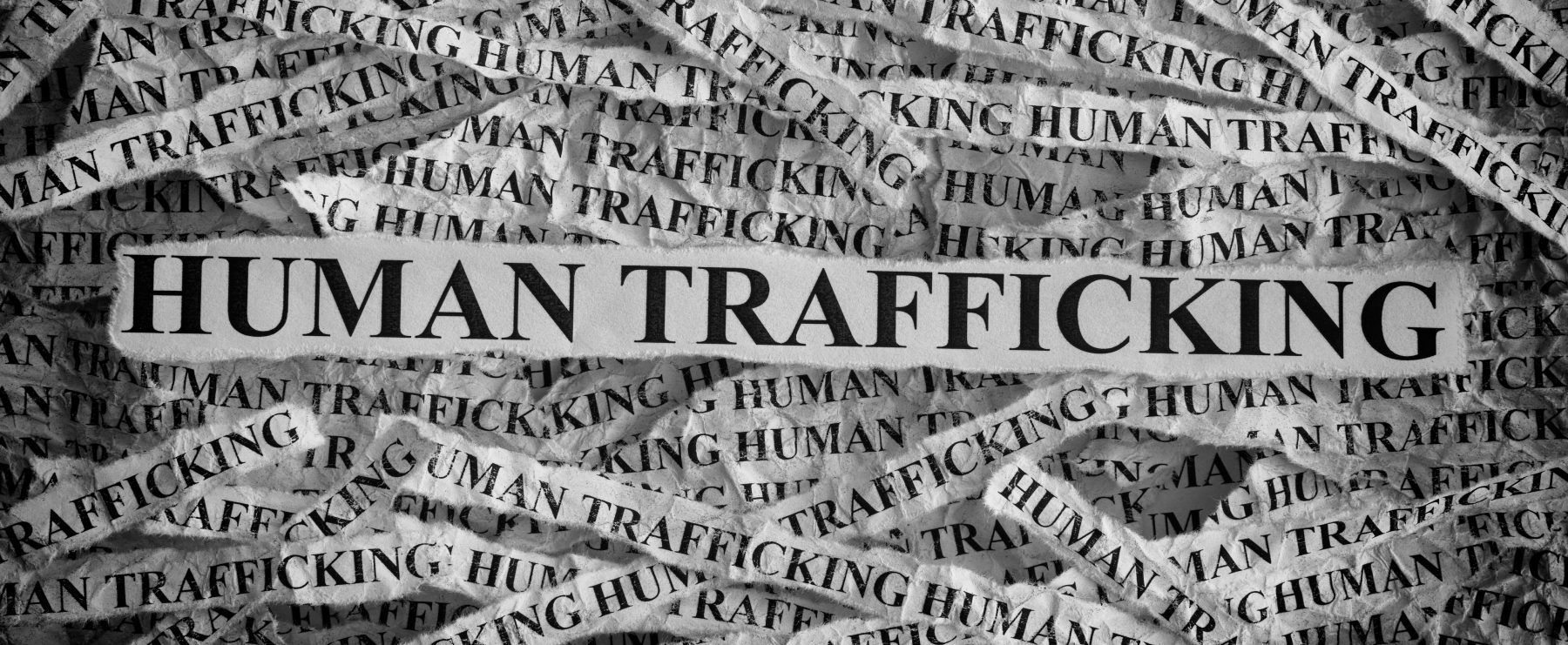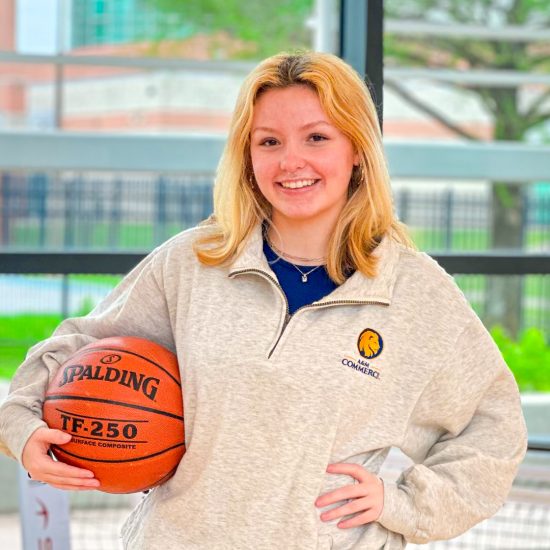Human Trafficking Courses Bring Awareness, Volunteer Opportunities to A&M-Commerce Students
Students at Texas A&M University-Commerce are gaining awareness of human trafficking thanks to the university’s newly developed undergraduate and graduate courses. The courses also provide volunteer opportunities for students to help trafficking victims.
The U.S. Department of Justice defines human trafficking as “a crime that involves compelling or coercing a person to provide labor or services, or to engage in commercial sex acts.”
According to a Department of Homeland Security report, human trafficking generates an estimated $150 billion annually, with traffickers victimizing an estimated 25 million people worldwide each year.
Lyndsey Norris is a clinical instructor for the School of Social Work at A&M-Commerce. Following years of research, she is working toward her doctorate in higher education focusing on human trafficking research.
She initially developed an intensive master's level course on the subject offered to A&M-Commerce social work students. The success of the graduate course encouraged Norris to develop an undergraduate course available to all A&M-Commerce students, regardless of their major.
The undergraduate course is available during the winter mini term. Students learn the various forms of human trafficking, identify the human cost of buying cheaper items made possible by human trafficking and discuss human smuggling, which can often lead to human trafficking.
“Another real eye-opener is the number of college students nationwide who participate in sugar dating,” Norris said.
She explained that sugar dating, also known as “sugaring,” occurs when students engage in relationships with older, wealthy individuals to offset the high costs of attending college without falling into student debt. Norris said the practice often falls under or turns into human trafficking.
Zachariah Branham, a junior majoring in social work at A&M-Commerce, said the undergraduate course increased his awareness and vigilance.
“This experience showed me the importance of being fully aware of my surroundings, especially when I'm with my wife and daughter,” Branham said. “Now that I've been educated on the realities of human trafficking, it's hard not to look for the signs wherever I go.”
The graduate-level human trafficking course is available to social work students each summer.
“We go into greater detail about several types of human trafficking in the United States and worldwide, including sex trafficking, labor trafficking and organ trafficking,” Norris said. “We also review related governmental policies and entities, including the Trafficking in Persons Report, the U.S. Congress, the Department of Justice, and the United Nations.”
The course also investigates Texas directives and coalitions focused on human trafficking.
“Texas is second in the nation behind California for the number of human trafficking incidents,” Norris reported. “Students learn why Texas is such a hot spot, including its sheer size, the border with Mexico, and the number of major interstates running through the state.”
Natalie Shelton is pursuing her master's degree in social work at A&M-Commerce.
“This course dives deep into the undercurrent of the human trafficking epidemic,” Shelton said. “The curriculum reveals the factors that lead marginalized populations to be subject to trafficking and the elusive operations traffickers utilize in their execution of modern slavery.”
Student Involvement
During their course experience, students are asked to complete a community project that directly addresses issues related to trafficking.
Undergraduate social work student McKenna Neal created an awareness video for the course that is available to view on YouTube.
Norris said a previous graduate student who took the class became a founding member and driving force behind the North Texas Coalition Against Human Trafficking.
Other master's students have helped write grants for state agencies and provided corporate and non-profit training sessions. They also created stickers for the Texas Department of Transportation to display in public rest stops. The stickers allow trafficking victims to access rescue resources by scanning a QR code.
Undergraduate and graduate students can attend optional training to volunteer with The Poiema Foundation. The agency combats human trafficking by educating the public, engaging with communities, and empowering trafficking survivors. Poiema provides volunteer outreach opportunities throughout the Dallas-Fort Worth metroplex.
Melissa Anguiano is an undergraduate business major at A&M-Commerce with a background in hospitality, tourism and travel. After working with Poiema as part of the course, she plans to continue volunteering with the agency.
“I was very moved during my outreach work with Poiema,” Anguiano said. “I feel there isn't enough awareness and training for front-line workers. I hope to work with Poiema to facilitate training at the hotels I work with.”
Norris believes a major obstacle to overcoming human trafficking is awareness and a greater understanding of the factors involved, including fraud, deception, control and coercion. She said traffickers play on their victims' vulnerability and desperation.
“As a university community, we often serve as change agents in society,” Norris said. “Embracing the value of service to the community is something we, as faculty, want our students to gain along with their degree. We're optimistic about their ability to study and develop interventions to eradicate human trafficking in our society.”
Learn more about human trafficking at the Texas Human Trafficking Resource Center website. To learn more about human trafficking courses at A&M-Commerce, contact [email protected].
If you or someone you know may be a victim of human trafficking, chat online or call the National Human Trafficking Hotline at 888.373.7888 (TTY: 711).






